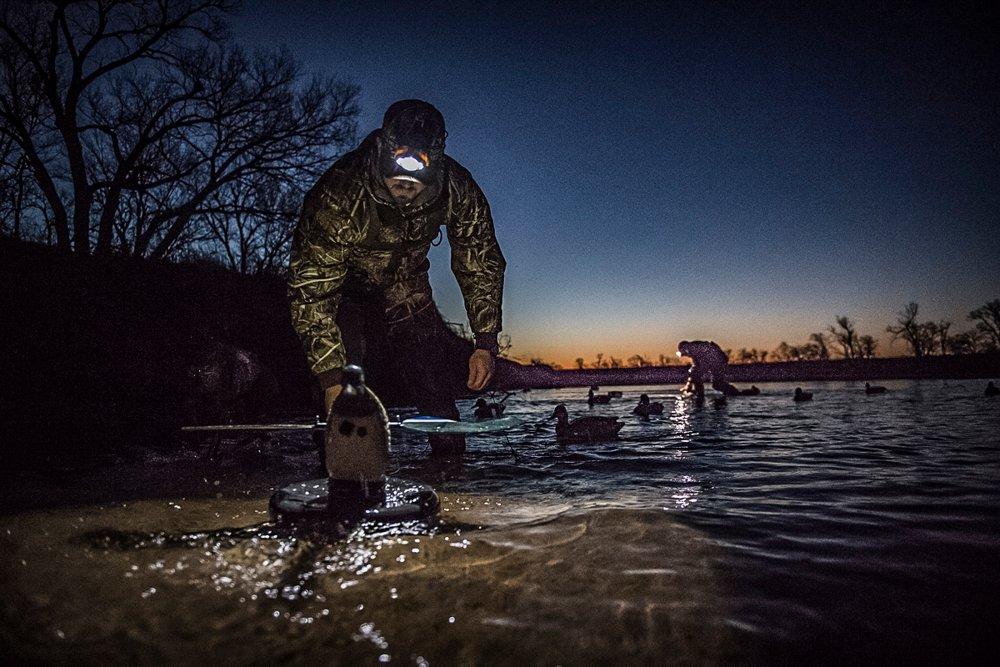The Situation Determines When You Should be Set Up and Ready
The question arises most days from September through January: When do I need to get to my spot? More important, how early do I have to get up?
Here are some quick thoughts on timing your waterfowling arrival and setup schedule.
Usually, Get Up Early
In general, this rule holds true: Be set up at your spot and ready to shoot well before the action starts. Most days, that means tossing decoys in the dark and waiting for legal shooting light. This is especially critical during unseasonably warm weather, when hunting pressured birds or when pursuing wood ducks, which generally fly like nuts the first few moments of daylight but then hunker down.
I've also found it important to be early when flushing ducks off small waters and waiting for them to return. It's usually best to bust them out in the dark and then let the area settle down for a bit. Try to enter the spot an hour or more before shooting time. Caveat: If you flush mallards off a small roost, they might not return — period. You can bend this rule a bit in relatively unpressured areas such as Canada or the Dakotas, but typically, earlier is better when scaring birds off.
Most of these situations require you to wake up ridiculously early, drive and boat in the dark, and then try to set a decent decoy spread via spotlights. But hey, you're a waterfowler; that's the game.
But Some Days, Sleep In
Hunting loafing areas, where ducks and geese spend much of their day after morning feeding sessions and before going to roost, can be especially productive. Usually, I try to set up at these spots when I'm certain birds are at feeding areas, which means fairly early in the morning when chasing mallards and perhaps a bit later when after geese. But again, being too early will never hurt you.
Sometimes, afternoon or evening hunts are more productive than morning hunts. You can sleep in, but you should still be set up and ready long before you expect the action to start. Further, hunting during what might be a relatively unproductive time — noon to 3 p.m., for example — could add a few birds to your strap.
On afternoon goose shoots, I like to be covered up and ready an hour or longer before birds usually fly. That gives you time to critique your spread and cover. The same goes for evening diver shoots, which can be frenzied hunts as birds travel to roosting areas. You don't want to be dropping long lines when birds are zipping past.
Likewise, when a big midday or late-afternoon weather shift promises to move birds, you can often sleep in and set up during daylight. However, timing such changes can be tricky, so it's wise to secure your spot and be ready well before the wind shifts.
Bottom Line
When in doubt, remember the old adage: You'd rather be an hour early than five minutes late. Sure, you can wait a bit to set up during some situations. Just don't wait too long. You're a waterfowler. Early mornings are part of the deal.
Click here for more Realtree waterfowl hunting content. And check us out on Facebook.







